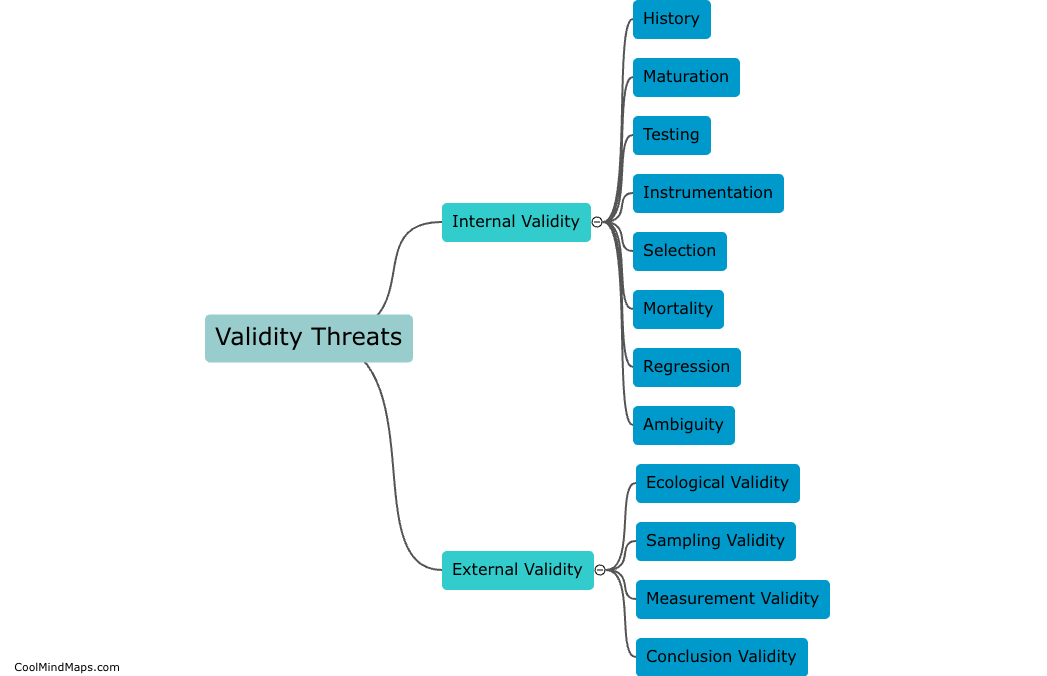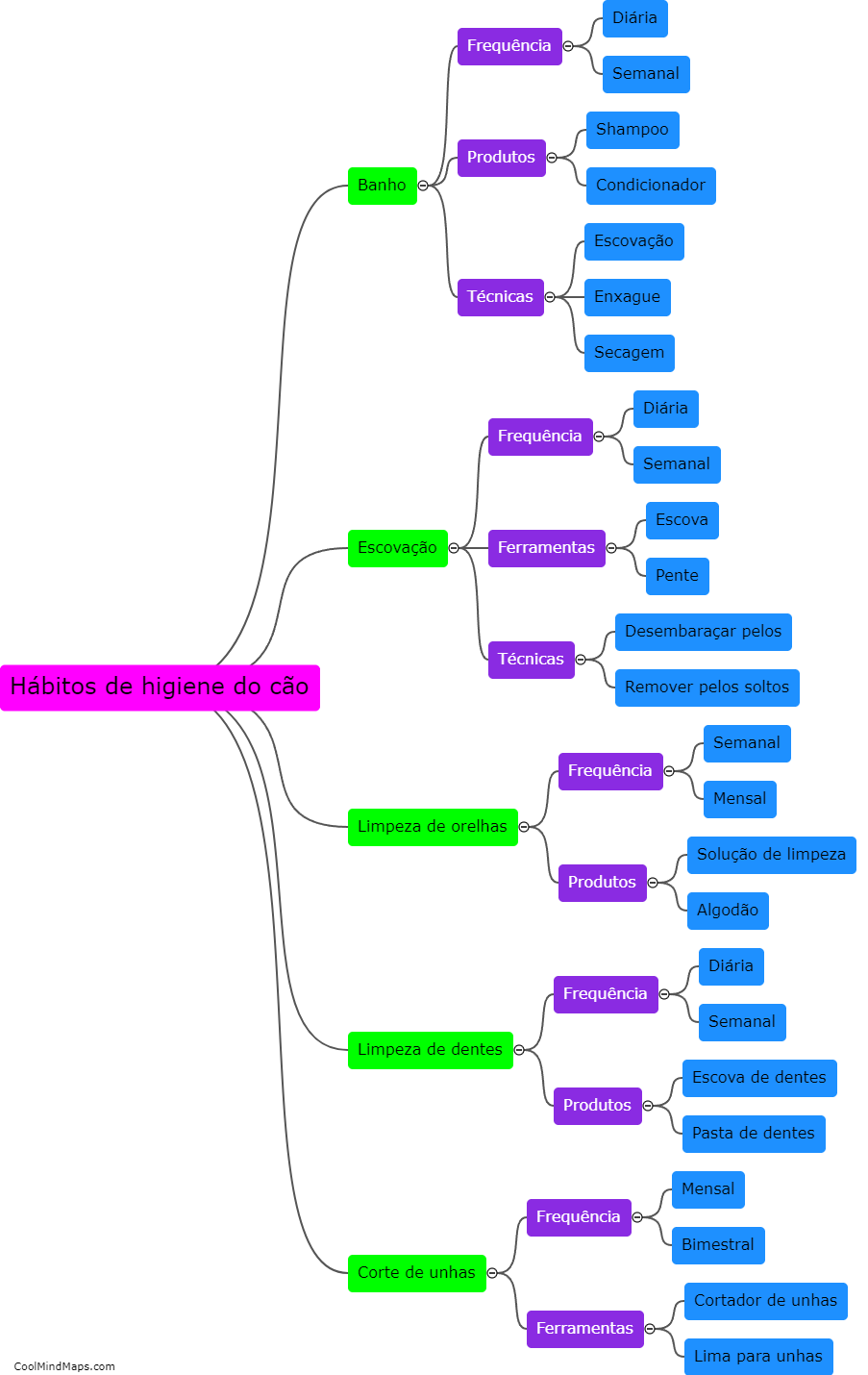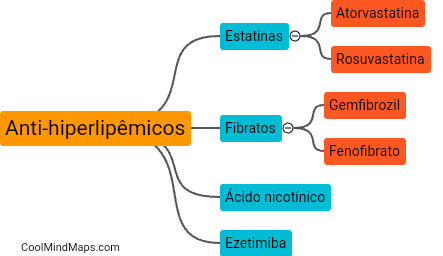How do anti-hiperlipêmicos work?
Anti-hyperlipemics are a class of medications used to lower elevated levels of fats and lipids, particularly cholesterol, in the bloodstream. These medications work through various mechanisms to reduce lipid levels and decrease the risk of cardiovascular diseases. One common approach is inhibiting an enzyme called HMG-CoA reductase, which plays a crucial role in cholesterol synthesis. By blocking this enzyme, anti-hyperlipemics decrease the production of cholesterol in the liver, thereby lowering its concentration in the bloodstream. Other anti-hyperlipemics may work by increasing the breakdown and elimination of lipids or by inhibiting their absorption from the intestines. Overall, these medications help regulate lipid metabolism and contribute to the management of hyperlipidemia.

This mind map was published on 10 August 2023 and has been viewed 246 times.











